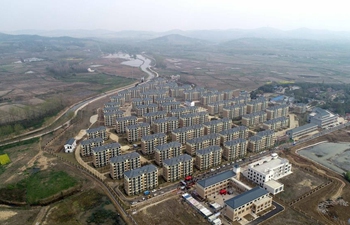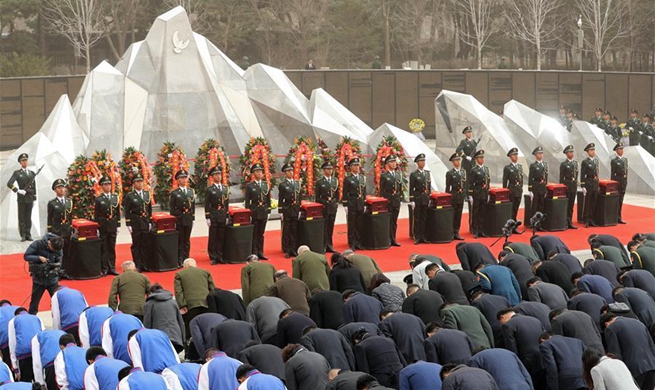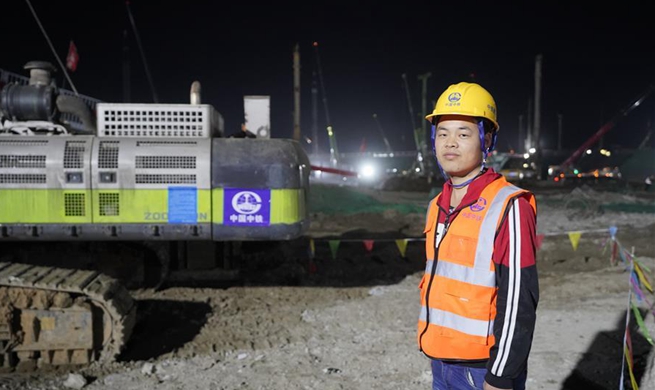GUANGZHOU, April 4 (Xinhua) -- Chinese researchers have developed an artificial intelligence (AI) medical tool that can help doctors target head and neck tumor cells faster and more accurately, according to an article published in the international journal Radiology.
Nasopharyngeal carcinoma is cancer that starts in the nasopharynx, which is the upper part of the pharynx behind the nose. Symptoms include lumps in the neck, nasal congestion, headache and hearing loss. About 70 percent of patients were in the later stages when they were diagnosed.
Due to the organ structure and its location in the human body, surgery is always difficult, and radiation therapy is the most common form of treatment.
Radiation, delivered by a linear accelerator, can kill tumor cells but has to pass through about 40 vital organs including the brainstem and eyeballs before reaching the nasopharynx.
"Insufficient radiation exposure may cause cancer recurrence, while excessive exposure may result in brain damage, hearing loss and other side effects," said first author of the article Lin Li, a researcher with the Sun Yat-sen University Cancer Center in Guangzhou.
Accuracy in tumor delineation on diagnostic images is key to radiation therapy. However, manual delineation is labor intensive and highly variable among doctors.
"Generally it will take a senior doctor two to three hours to target the tumor volume on a CT or MRI, but for inexperienced doctors, it will take more than six hours," said lead researcher Sun Ying.
Researchers from Sun Yat-sen University, along with computer experts from the Chinese University of Hong Kong, constructed an AI contouring tool that could automatically delineate the gross tumor volume on patient's MRI data.
In the study, researchers collected MRI data sets covering the nasopharynx from 1,021 patients between 2016 and 2017 and applied the AI tool with a 3D convolutional neural network, a new medical image segmentation technique. The AI was trained to automatically delineate the tumor volume with images in 818 patients and were defined by the consensus of two human experts.
In a competition with eight qualified doctors from renowned hospitals, the AI contouring accuracy reached 79 percent with 203 patients, taking 20 to 50 minutes per case, outperforming the accuracy of human competitors.
To further explore the clinical value of the research, two months after the competition, the eight doctors were asked to correct the AI-only automated contouring results, which is a process called AI assisted contouring. The result showed that it improved manual tumor contouring accuracy by 5 percent.
Reviewers of the journal Radiology were impressed by the sample size used in the paper, and commented that such an AI contouring tool for tumor targeting was "rare and challenging."
The AI contouring tool can help inexperienced doctors reach expert level, raising their work efficiency, which could have a positive impact on tumor control and patient survival, said Sun.
The AI tool will be put into clinical test in more places, Sun said.

















